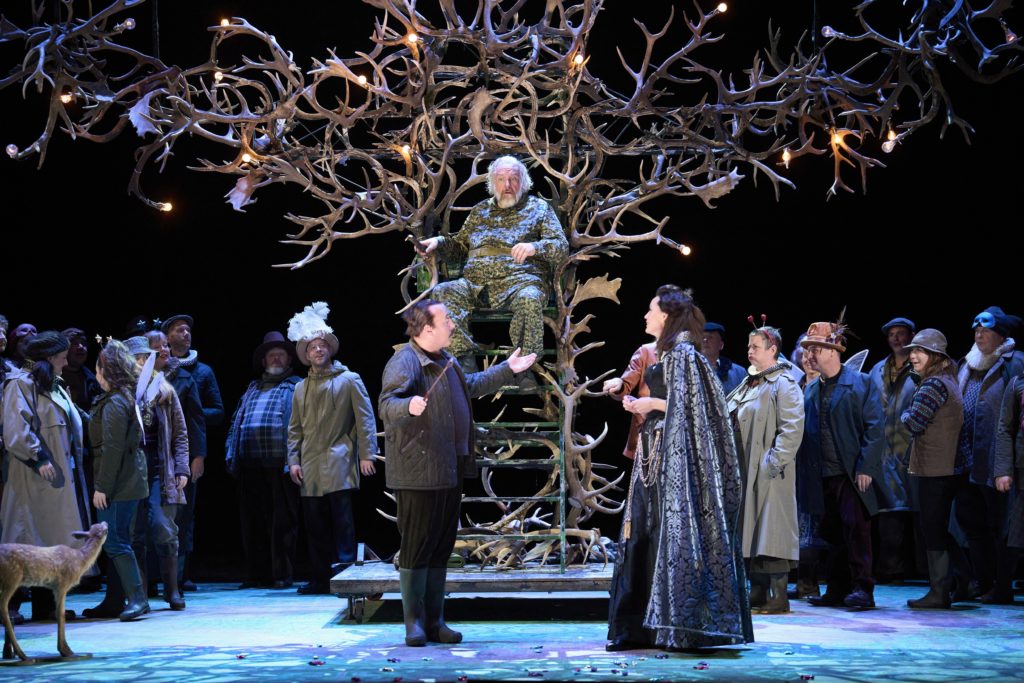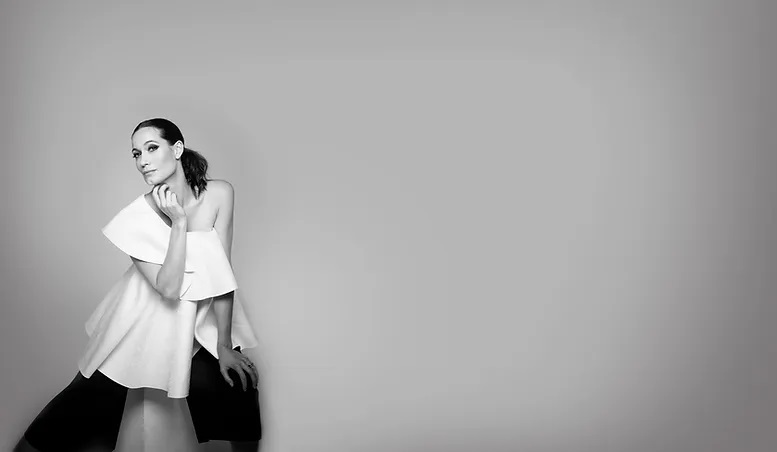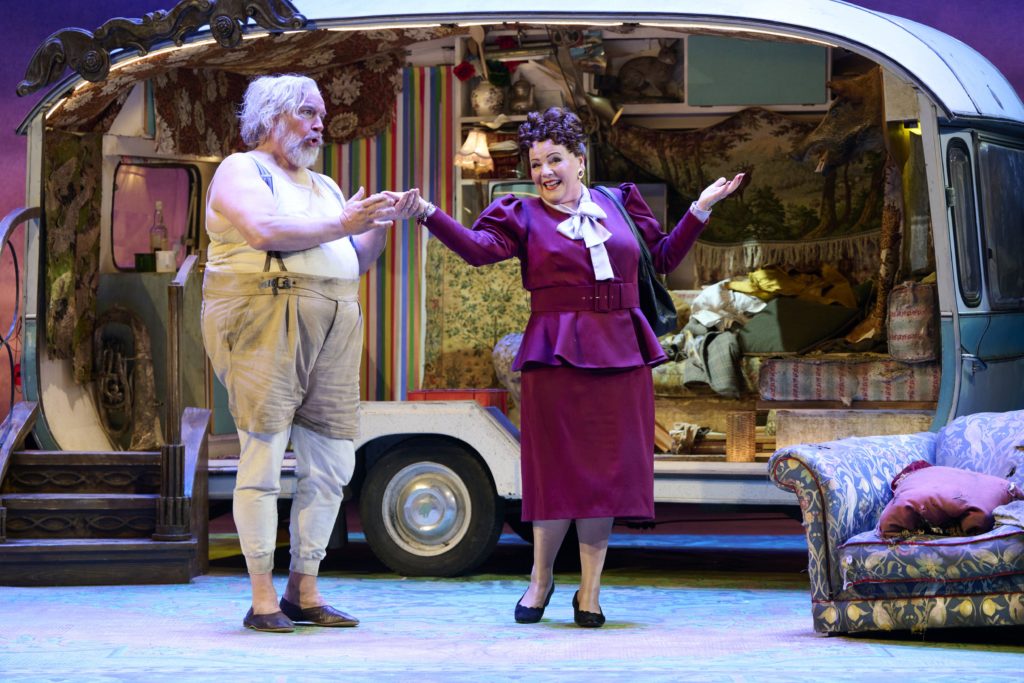
IT is exactly 400 years since the publication of the First Folio of Shakespeare’s complete works, which included The Merry Wives Of Windsor. Sir John Falstaff is its principal character, but his name does not appear in the title.
Olivia Fuchs must surely have noticed this in her new production of Verdi’s comedy, which deservedly gives plentiful attention to the wives.
Here it is the opening salvo in Opera North’s Green Season, in which its three productions are sharing scenic elements, with all sets and costumes sourced from current stock and previous productions or bought second-hand.
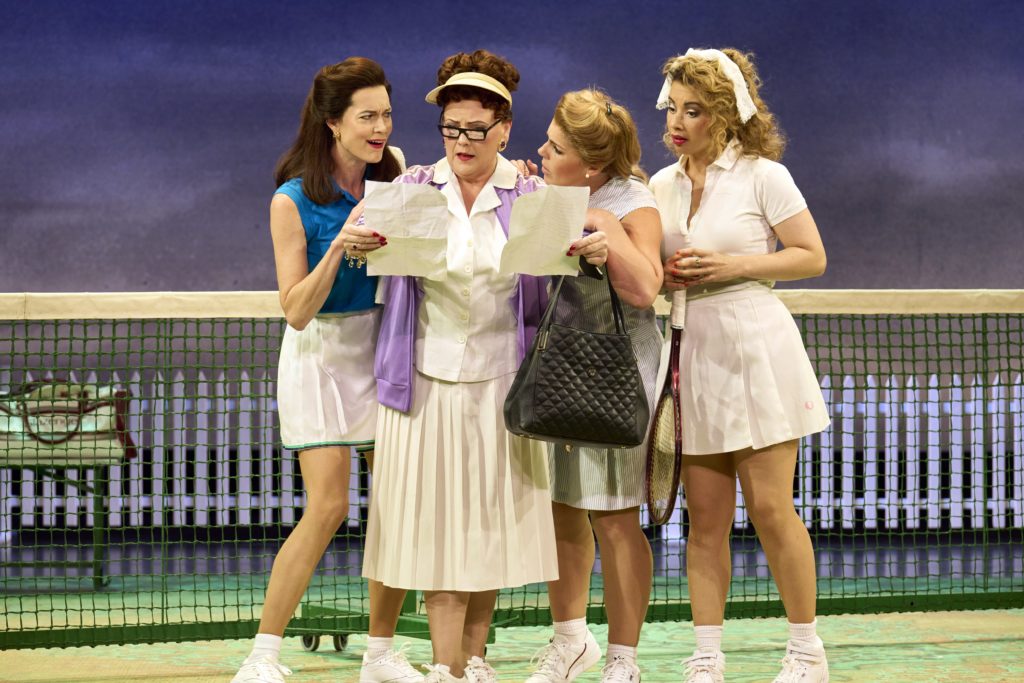
Principal among the purchases is a weathered, open-sided 1970s caravan, which serves as Falstaff’s HQ for his intrigues against the bourgeois ladies of Windsor. Down on his uppers and sporting braces and shorts over his sweaty T-shirt, he is the epitome of trailer trash. Thus the need for period costumes is neatly side-stepped, while bringing the whole comedy much nearer home: surely a victory for both ecology and economy.
But the engine-room of this sparkling evening is Garry Walker’s orchestra. Anyone who can wrest their attention away from the hi-jinks on stage will find it hard to keep a smile off their face at what is going on in the pit.
If there is more stress on the first word of commedia lirica than on the second, it is entirely in keeping with Fuchs’s vision. For humour underlies Walker’s every gesture. It is not just that his orchestra is light on its toes, it is attuned to the finest detail of Verdi’s orchestration: the dancing woodwinds, the taut trills, the caustic brass, all are calculated to enhance the text, in this case Amanda Holden’s wise and witty translation, also seen in side-titles.
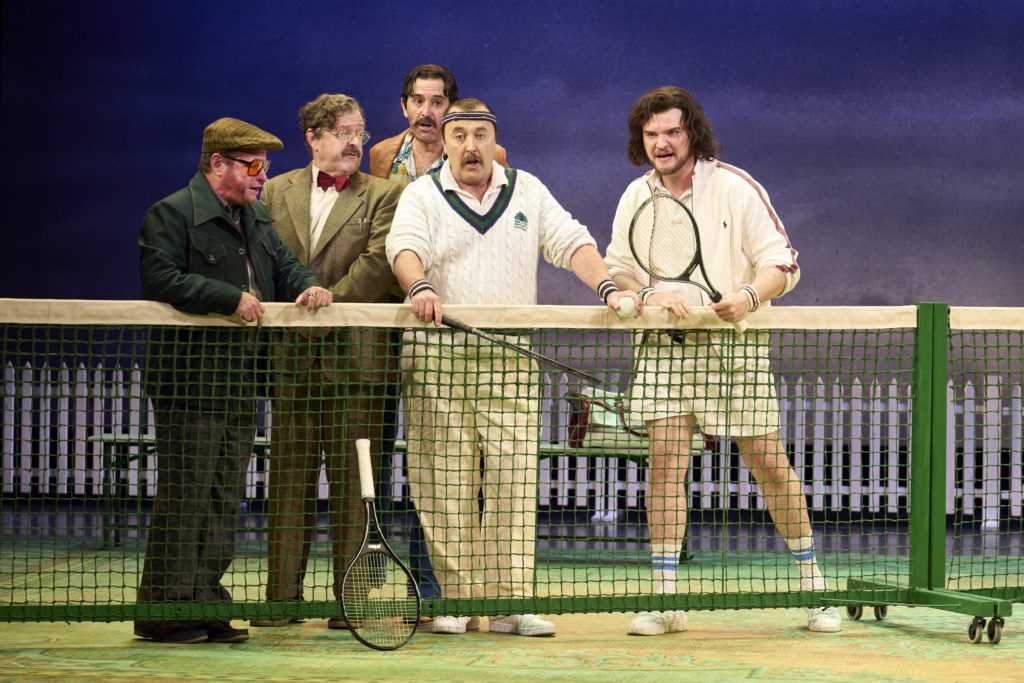
The moment that encapsulates every aspect of the show is when Falstaff breaks into a gleeful caper on exclaiming “Alice is mine!”. Here laughter, choreography, song, orchestra are one, a magical moment.
Rarely have instruments sounded so comical, as Verdi – letting his hair down in his 80th year – throws caution to the winds. Walker deserves gratitude for reminding us of this so vividly, and with immaculate pacing into the bargain.
While we laugh at this Falstaff, we never lose sympathy for him. As he lumbers out with his ghetto blaster in Act 2, preparing for conquest, or wanders expectantly into the wood in Act 3, Henry Waddington’s corpulent blunderer is never an object of mere derision. So that when he changes his tune at the finale and joins in the general rejoicing, it rings true – as if we have been watching a play within a play.
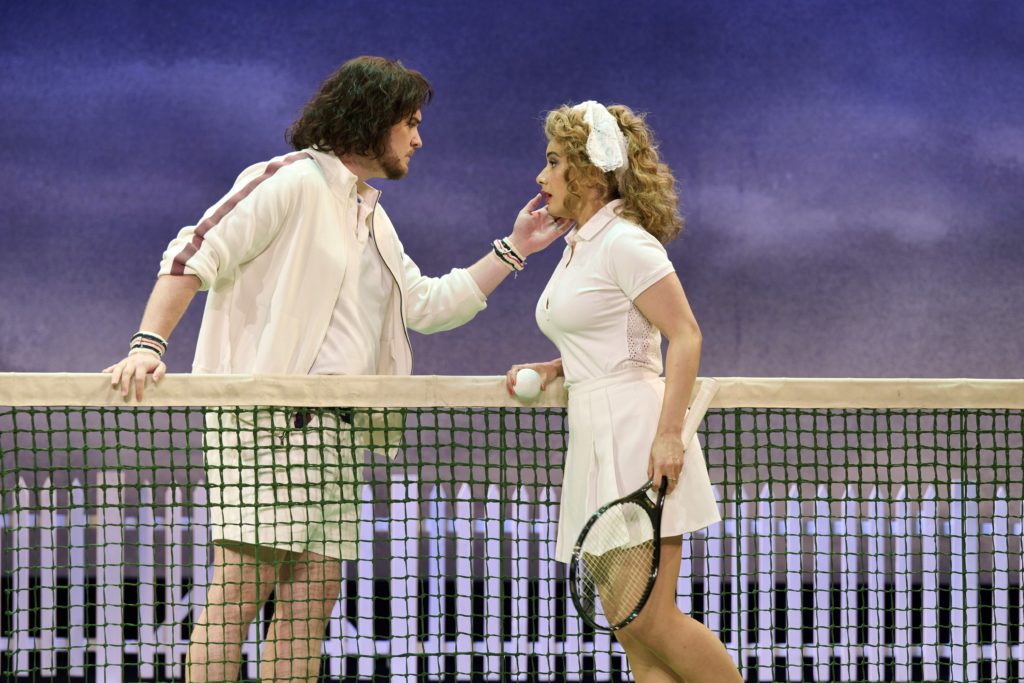
Waddington’s baritone is in excellent trim, relishing the arioso nuances of the role with exemplary diction. He has made many memorable appearances with this company, but this is surely his finest hour in Leeds.
He is admirably matched by Kate Royal’s Mistress Alice, not least through her comic timing in dialogue. But her soprano is wonderfully flexible too. As her husband Ford, James Davies stepped out of the chorus on this occasion to replace the indisposed Richard Burkhard and did so with distinction. He warmed into the role smoothly and resonantly, as if he had always been part of the front line – and deserved the cast applause at the final curtain.
There is no lack of quality in the lesser roles. Helen Évora’s charm ensures she makes the most of Mistress Meg and Louise Winter’s seen-it-all-before Mistress Quickly is a perfect piece of casting.
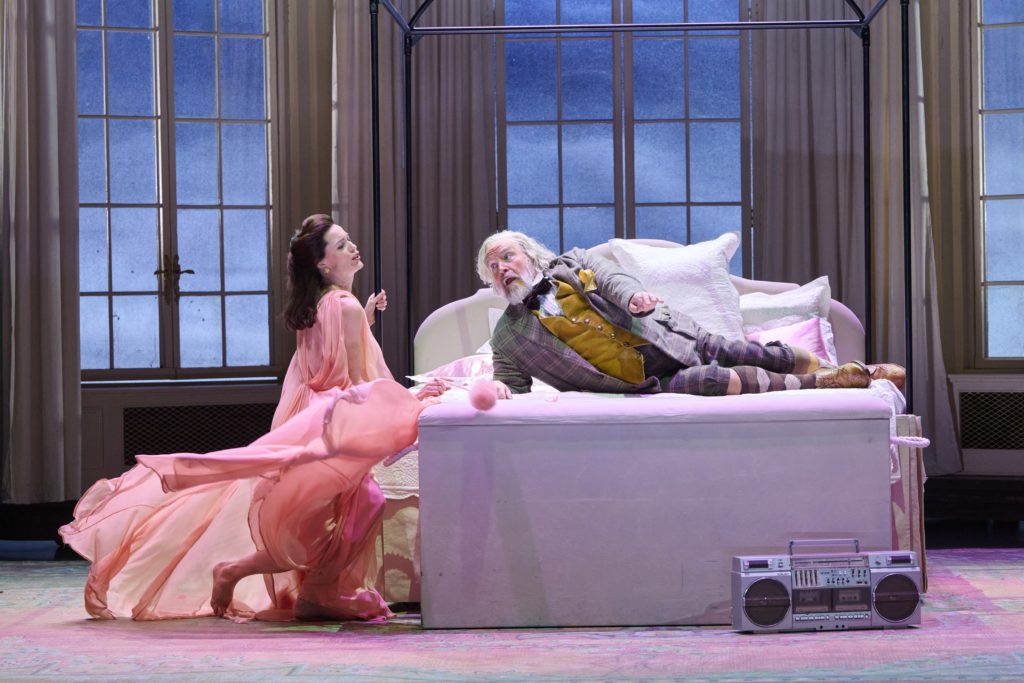
As the only “serious” lovers, Nannetta and Fenton, Isabelle Peters and Egor Zhuravskii are well blended, she flighty and innocent, he eager in his high tessitura, reminiscent indeed of Paul Nilon in his younger days – who here brings a cutting edge to Doctor Caius. Colin Judson and Dean Robinson offer a neat combination of bafflement and bravado as Bardolph and Pistol. The chorus is as disciplined as ever.
It is hard to judge just how green this production is. Suffice to say that the ‘tree’ of real antlers in Act 3, shed naturally by the herd at Harewood House, is an impressive assemblage. Nature will provide. But it is a tribute not only to Fuchs, but also to Leslie Travers’ set and Gabrielle Dalton’s costumes that the evening coheres so beautifully despite the environmental economies. Green is not necessarily mean.
Further performances in Leeds until October 25, then on tour until November 18. Leeds box office: 0113 243 0808 or leedsheritagetheatres.com.
Review by Martin Dreyer, October 5
